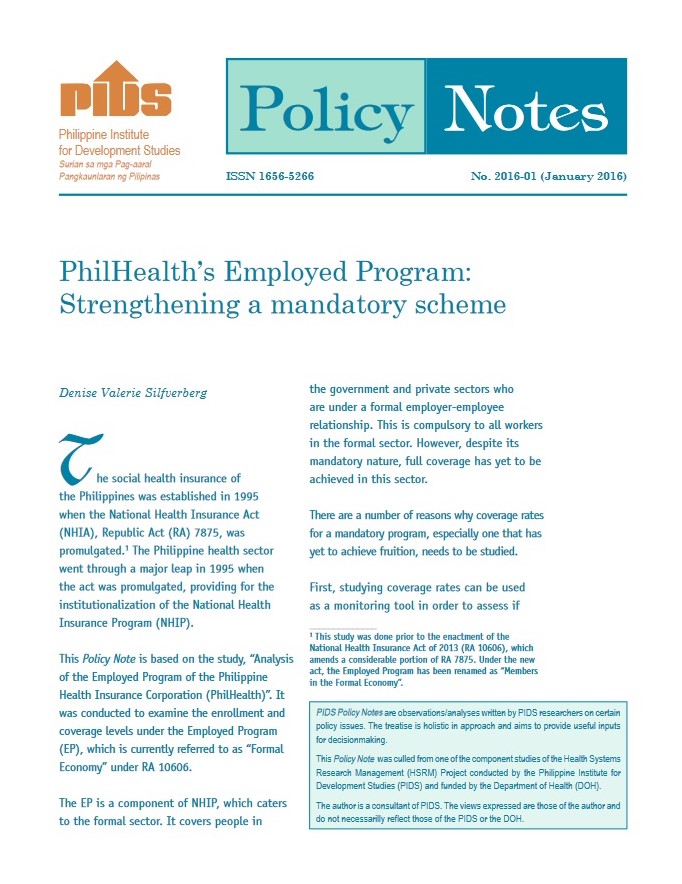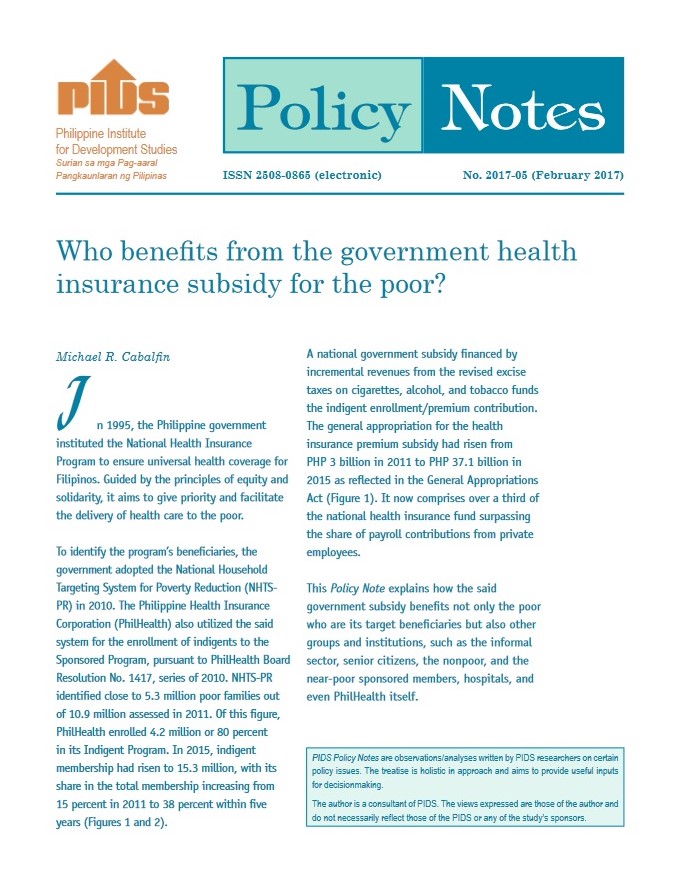Health care coverage for the informal sector is still slow according to a researcy of the UPecon Foundation — Health Equity and financial Protection in Asia Project (UPecon-HEFPA). According to the Philippine Institute for Development Studies (PIDs) under the National Health Insurance Program, the formal sector is mandatorily enrolled in the social health insurance program, while those in the informal sector, mostly self-employed and the near poor, have to enroll voluntarily.
In a release of PIDS, it cited Associate Professor Joseph Capuno University of the Philippines School of Economics (UPSE) who said that insurance subsidies in the form of premium vouchers, information kits, and assistance to complete and submit enrollment forms can increase insurance uptake by the informal sector.Capuno stressed this in a symposium on "Towards Universal SHI Coverage in the Philippines: Setting the Subsidies Right for the Informal Sector”, held at the UPSE. The forum was cosponsored by the Philippine Institute for Development Studies (PIDS) in observance of the 11th Development Policy Research Month.Through the PhilHealth Prepaid Premium (3P) study of the UPecon-HEFPA team, it was found that premium subsidies bundled with information drives (information kit and SMS messages) could help increase the enrollment in social health insurance (SHI). However, financial burdens placed on families by the enrollment process must be addressed. The identified Individually Paying Program (IPP) members of the 3P study were given 3P certificates worth six hundred pesos each, which they can use to enroll in PhilHealth. They were all also given information packets about the IP program, its requirements and procedures. Very few 3P certificate recipients enrolled, however, and it was found out that this was due to the lack of funds to cover the transaction costs of their enrollment (like transportation fares).












